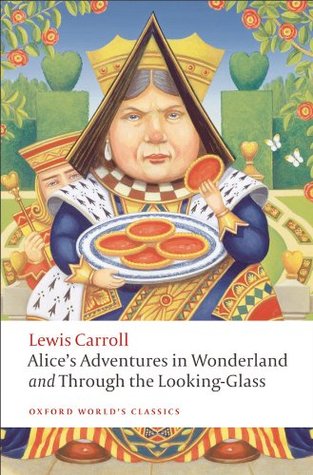More on this book
Community
Kindle Notes & Highlights
Read between
December 28, 2020 - January 8, 2021
‘Wonderland’ is not used to equal ‘stupid’ or ‘idiotic’: as in the books, Wonderland is the place where everyone else is mad,
Finnegans Wake (1939), is suffused with Carrollian allusions.
The most important, most neglected, fact about ‘Wonderland’ is that it is not a ‘land of wonders’, but rather ‘a land where one wonders’.
Virginia Woolf, no less, who wrote (perhaps a little unguardedly) in 1939: ‘Only Lewis Carroll has shown us the world upside down as a child sees it, and has made us laugh as children laugh, irresponsibly. Down the groves of pure nonsense we whirl laughing, laughing
W. T. Stead’s campaign against child prostitution in the Pall Mall Gazette in the 1880s, which led in 1885 to the raising of the age of consent to 16, provoked Dodgson into a passionate response: he wanted Stead to be prosecuted for obscene libel for the graphic way in which he presented his findings.
Is this insidious or (in the same vein as Goldwaite's remarks) adherence to a Victorian/Christian propierty?
Mark Twain, who met him at the MacDonalds’ in July 1879, described him as ‘the stillest and shyest full-grown man’ he had ever met.
Carroll was absolutely convinced that the innocence of the child was a natural quality.’
We cannot know to what extent sexual urges lay behind Charles’s preference for drawing and photographing children in the nude. He contended that the preference was entirely aesthetic … but … he probably felt more than he dared acknowledge, even to himself … For posterity, however, there were compensations. If Charles Dodgson’s suppressed and diverted sexual energies caused him unspeakable torments, and they did, they were in all probability the source of those exceptional flashes of genius that gave the world his remarkable creative works.
As to how many copies we sell I care absolutely nothing: the one thing I do care is, that all copies that are sold shall be artistically first-rate.’
‘deedy!’
This leads us to Dodgson’s major contribution to children’s literature, which was to find a narrative voice that closed, or gave the impression of closing, the gap between writer and reader. By doing so he shifted the balance of power within the texts, removing the adult’s controlling voice and allowing children to think for themselves.
Perhaps as a result of this process, the books are intricately layered. There is the conscious, personal level, using incidents, characters, and places familiar to Alice Liddell and Dodgson’s immediate circle. Next there is the matrix of philosophy, mathematics, and linguistics––serious games for both child and adult readers. Then there is a wider world of references to Oxford and national personalities and politics––both the preoccupations of a singular mind, and the natural furniture of the mind of a well-educated Victorian scholar and gentleman. Finally, and more contentiously, there are
...more
She generally gave herself very good advice (though she very seldom followed it),
‘CURIOUSER and curiouser!’
‘Who are you?’ said the Caterpillar. This was not an encouraging opening for a conversation. Alice replied, rather shyly, ‘I––I hardly know, Sir, just at present––at least I know who I was when I got up this morning, but I think I must have been changed several times since then.’
‘Then you should say what you mean,’ the March Hare went on. ‘I do,’ Alice hastily replied; ‘at least––at least I mean what I say––that’s the same thing, you know.’ ‘Not the same thing a bit!’ said the Hatter. ‘Why, you might just as well say that “I see what I eat” is the same thing as “I eat what I see”!’ ‘You might just as well say,’ added the March Hare, ‘that “I like what I get” is the same thing as “I get what I like”!’ ‘You might just as well say,’ added the Dormouse, which seemed to be talking in its sleep, ‘that “I breathe when I sleep” is the same thing as “I sleep when I breathe”!’
‘Take some more tea,’ the March Hare said to Alice, very earnestly. ‘I’ve had nothing yet,’ Alice replied in an offended tone: ‘so I ca’n’t take more.’ ‘You mean you ca’n’t take less,’ said the Hatter: ‘it’s very easy to take more than nothing.’
‘Every thing’s got a moral, if only you can find it.’*
‘Do you hear the snow against the window-panes, Kitty? How nice and soft it sounds! Just as if some one was kissing the window all over outside. I wonder if the snow loves the trees and fields, that it kisses them so gently? And then it covers them up snug, you know, with a white quilt; and perhaps it says “Go to sleep, darlings, till the summer comes again.” And when they wake up in the summer, Kitty, they dress themselves all in green, and dance about––whenever the wind blows––oh, that’s very pretty!’ cried Alice, dropping the ball of worsted to clap her hands. ‘And I do so wish it was true!
...more
Why, sometimes I’ve believed as many as six impossible things before breakfast.


